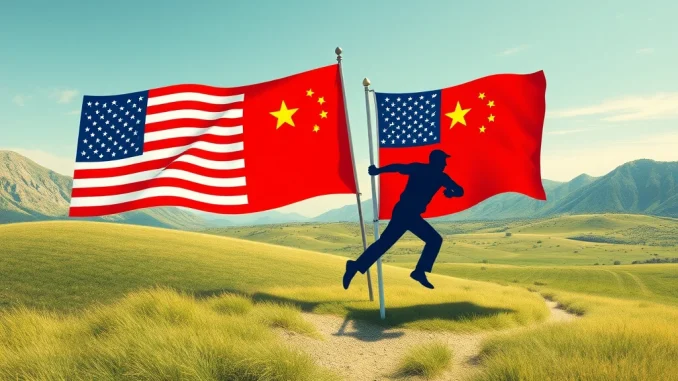
The ripples from the FTX Collapse Aftermath continue to spread, reaching into unexpected corners of technology and politics. While the crypto world grappled with the fallout, a prominent voice suggests a significant strategic shift is underway within a movement previously linked to the failed exchange.
What’s Happening with Effective Altruism?
According to David Sacks, the White House AI & Crypto Czar, the group known as Effective Altruism is undergoing a significant transformation. Effective Altruism is a philosophical and social movement that advocates using evidence and reason to determine the most effective ways to benefit others. It gained considerable attention, and funding, partly through its association with figures like Sam Bankman-Fried.
Sacks claims that following the high-profile implosion of FTX and the subsequent legal troubles for its founder, the Effective Altruism movement felt pressure to distance itself from its tarnished image. The alleged response? A strategic rebrand.
From Philanthropy to China Hawks?
David Sacks asserts that the rebrand sees Effective Altruists now attempting to present themselves as “China hawks.” This term typically refers to individuals who advocate for a strong stance against China, often focusing on geopolitical or economic competition.
However, Sacks warns that this rebrand is merely a facade. He argues that the underlying objective of the movement remains unchanged: to deliberately slow down technological progress. This includes crucial areas like artificial intelligence.
Why Slow Down AI Progress?
While not explicitly detailed in the original text, some factions within Effective Altruism and related movements express concerns about potential existential risks posed by advanced AI. This concern drives the desire to slow down development to ensure safety measures and ethical guidelines are established.
Sacks’s point is that regardless of the motivation, the strategy of deliberately impeding technological advancement, particularly in AI, poses a severe risk to national interests.
The Risk to the China AI Race
The global competition for leadership in artificial intelligence is intense, often framed as a critical China AI Race between the United States and China. Both nations are investing heavily in research, development, and deployment of AI technologies.
David Sacks highlights a critical danger: if the agenda to slow down AI Progress gains traction and influences policy in the U.S., it could significantly hinder American innovation. This self-imposed slowdown could allow China, which is unlikely to adopt similar constraints, to pull ahead, potentially dominating future technological landscapes and the economic and geopolitical power that comes with it.
Conclusion: A Warning for the Future
The claims made by David Sacks paint a concerning picture of how the FTX Collapse Aftermath might have inadvertently triggered a strategic shift within a movement, potentially impacting the vital race for AI supremacy. The warning is clear: efforts to deliberately slow down technological progress, regardless of their origin or rebranded appearance, could jeopardize the U.S.’s position in the global AI competition, allowing rivals like China to gain a decisive advantage.



